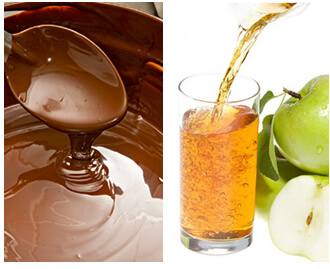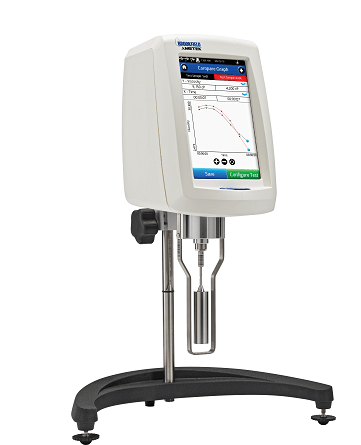Product Categories
The Importance of Viscosity Control in Food Production
Viscosity is a critical parameter in food production as it affects the texture, appearance, and stability of food products. In the Irish market, where food is an essential part of the economy, viscosity control is crucial to ensure high-quality products that meet consumer expectations and regulatory requirements.

Texture and Mouthfeel
The texture and mouthfeel of food products are essential to consumers and influence their purchasing decisions. The viscosity of a food product is a crucial factor in determining its texture and mouthfeel. For example, the viscosity of ice cream affects its creaminess, smoothness, and ability to maintain its shape during storage and serving. Similarly, the viscosity of sauces, dressings, and gravies affects their ability to coat and cling to food items, enhancing their flavor and appearance.
Appearance and Stability
Viscosity also affects the appearance and stability of food products. The viscosity of a product influences its colour, transparency, and glossiness. For example, the viscosity of fruit purees determines their ability to suspend particles and create a smooth and consistent texture. Additionally, the viscosity of a product can impact its stability, preventing or reducing the separation of components, such as oil and water in emulsions.
Viscosity Control Methods and Equipment
To maintain consistent viscosity levels in food production, various methods and equipment are used. One common method is to control the ingredients' proportions and quality, such as the fat content, solids content, and pH level. Another method is to adjust the processing conditions, such as temperature, shear rate, and mixing time, to achieve the desired viscosity.
Various viscosity control equipment are used in the food industry, including viscometers, rheometers, and texture analysers. These instruments measure the viscosity, yield stress, and other rheological properties of food products, allowing manufacturers to adjust the production process and ensure consistent quality.
Viscosity Control in Irish Dairy Products
Ireland is renowned for its high-quality dairy products, which are exported worldwide. Dairy products like yogurt, cream, and cheese rely heavily on viscosity control to achieve the desired texture, consistency, and mouthfeel that consumers expect.
One of the most popular dairy products in Ireland is yogurt, which is a fermented milk product that comes in various forms, including Greek-style yogurt, low-fat yogurt, and probiotic yogurt. Viscosity is a critical factor in yogurt production, as it affects the product's texture, thickness, and creaminess. Yogurt viscosity is measured using a viscometer, and the desired viscosity level depends on the type of yogurt being produced. For instance, Greek-style yogurt is typically thicker and creamier than regular yogurt, so it requires a higher viscosity level.
Cream is another dairy product that relies on viscosity control. Cream viscosity determines the product's thickness, spreadability, and stability, which are critical factors for cream used in desserts, sauces, and whipped cream. Over-whipped cream can become grainy, while under-whipped cream can separate and curdle, resulting in an unappetizing product. Viscosity control helps ensure that the cream is whipped to the right consistency, resulting in a smooth, stable, and delicious product.
Finally, cheese is a dairy product that also requires viscosity control, especially during the curdling and molding stages. The viscosity of the milk or cream used to make cheese affects the final product's texture, consistency, and flavor. Cheese manufacturers use viscosity control to monitor the milk's viscosity during the curdling process and to ensure that the cheese molds are filled with the right amount of curd. This helps ensure that the cheese has the desired texture, flavor, and appearance.
Irish Regulations and Standards
In Ireland, the food industry is subject to various regulations and standards that aim to ensure food safety, quality, and traceability. The Food Safety Authority of Ireland (FSAI) is responsible for regulating food production, processing, and distribution in Ireland. The FSAI has established guidelines and regulations for food processing facilities, including requirements for process control, hygiene, and equipment calibration.
The European Union also has regulations and standards that impact the Irish food industry. The European Food Safety Authority (EFSA) provides scientific advice and risk assessments related to food safety and quality, and the European Directorate for the Quality of Medicines and HealthCare (EDQM) establishes pharmacopoeial standards for medicinal and food substances, including viscosity standards.
Choosing Equipment To Control Viscosity

Lab Unlimited are proud suppliers of a wide range of viscosity control equipment used in the Irish food industry. Here are some of the types of viscosity control equipment that we offer:
Viscometers: Brookfield Ametek offers a wide range of viscometers, including rotational viscometers, which measure viscosity by rotating a spindle in a fluid sample, and capillary viscometers, which measure viscosity by measuring the flow of fluid through a narrow tube. These instruments are highly accurate and can measure viscosity across a broad range of shear rates and temperatures.
Rheometers: Rheometers are more advanced than viscometers and can measure both viscosity and other rheological properties like elasticity and yield stress. Brookfield Ametek offers a range of rheometers, including rotational rheometers, which measure viscosity and other properties by rotating a sample, and oscillatory rheometers, which measure viscosity and other properties by applying an oscillatory force to a sample.
Texture Analysers: Texture analyzers measure the physical properties of food products, including texture, firmness, and elasticity. These instruments can be used to measure the viscosity of products like yogurt, cheese, and cream by measuring the force required to deform the product. Brookfield Ametek offers a range of texture analyzers, including both compression and tension-based instruments.
In-Line Viscometers: In-line viscometers are used to monitor viscosity during food production processes. These instruments are installed in pipelines and use sensors to measure the viscosity of the fluid as it flows through the pipeline. Brookfield Ametek offers a range of in-line viscometers, including both rotational and vibrating element viscometers.
|
To discuss viscosity with an expert, |
